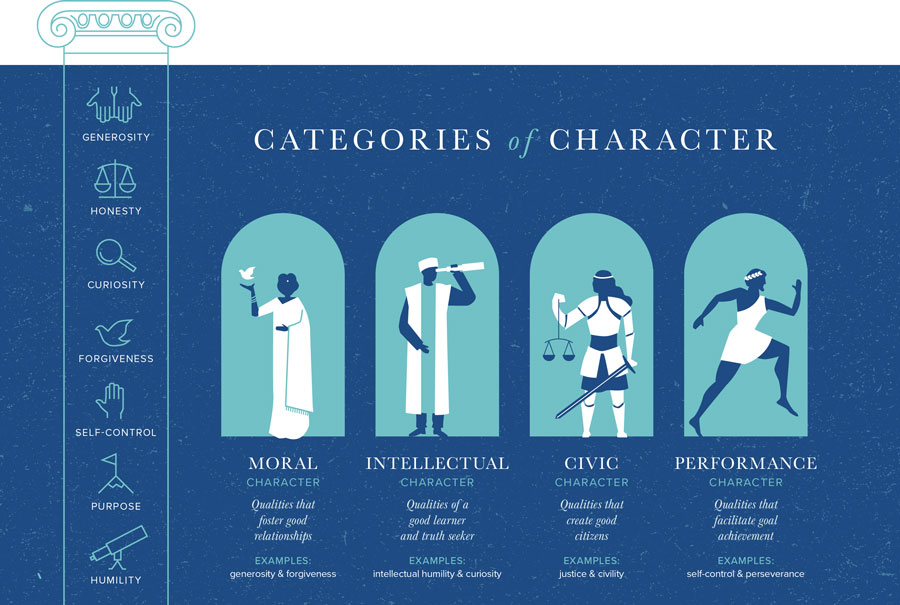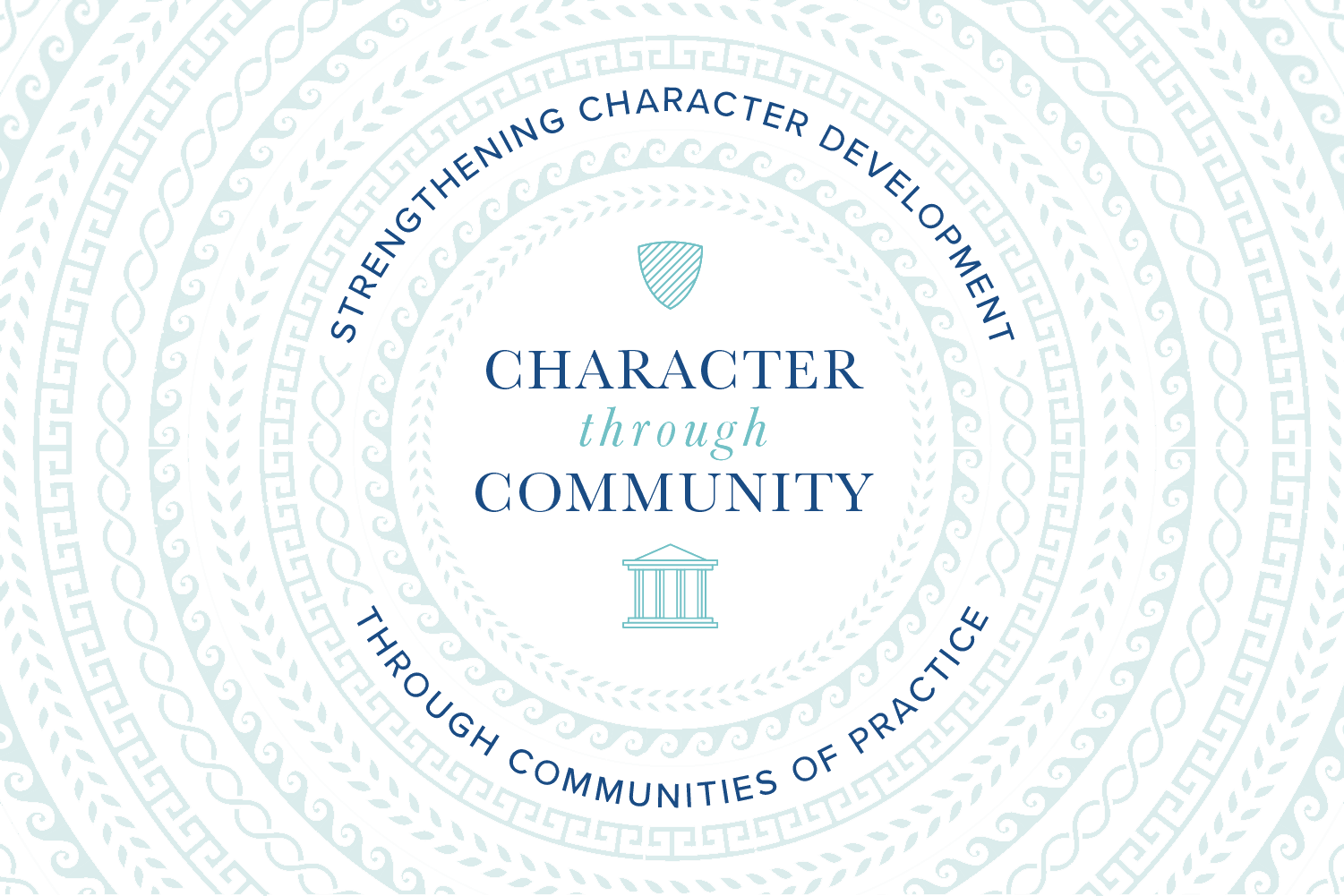Character Through Community
Update January 2023:Â
Congratulations to the 23 winners of the Character Through Community funding competition!
We received over 800 Online Funding Inquiries in response to the call, 46 of which were invited to submit a full proposal. The proposals were reviewed by a panel of seven experts as well as internal grant officers. Based on these reviews, the Board of Trustees ultimately awarded 23 grants that represent just over $20M in funding.
Learn more about the awarded grants.
Background
Many non-profit organizations that exist today are focused on scaling innovative solutions to complex social problems. Scaling programs is an important and often effective way to increase research and impact, but bringing a program to scale offers unique challenges for organizations that are interested in character development. Successful character development depends upon a range of factors including the presence of close relationships with a trusted adult or mentor, a strong purpose, robust cultural norms, and the opportunity to practice and grow in character over time. Of course, organizations must also focus on their financial health as well. Developing and maturing these diverse program components takes time, staff investment, and financial resources. In brief, many character-focused organizations need to focus on strength before scale.
Request for Proposals
The Character Virtue Development department at the John Templeton Foundation invites proposals from organizations that seek to strengthen their understanding and practice of character development through communities of practice. The Foundation has allocated $15M for this funding competition. Interested applicants should submit an Online Funding Inquiry (OFI) through the Foundationâs application portal. Please see below for further information on the Funding Competition focus, project requirements, and other important dates. The submission deadline for an OFI is June 11, 2021.
Definitions
What do we mean when we say âcharacter?â
In talking about character, we are referring to the thoughts, attitudes, and motivations that guide a personâs behavior. These qualities are sometimes described as strengths of heart (gratitude, generosity), strengths of mind (curiosity, humility), and strengths of will (self-control).[i] Alternatively, some organizations use the headings of moral character (e.g., gratitude, generosity), intellectual character (e.g., curiosity, humility), performance character (e.g., self-control), and civic character (e.g., civility).[ii] Importantly, these qualities are not cultivated in a vacuum, but rather in the context of close relationships and communities.[iii]

What is a âcommunity of practice?â
A community of practice is âa group of people who share a concern or a passion for something they do and learn how to do it better as they interact regularly.â[iv]Â These groups come together regularly to share knowledge, innovate, and solve problems. A community of practice does not necessarily need to involve formalized, contractual relationships between the organizations and individuals involved. Examples of communities of practice could include a group of teachers within a school or school network, a group of coaches with a sports league, a group of business leaders with an organization, or a group of religious youth leaders within a faith tradition.
For the purposes of this funding competition, applicants should be connected to a pre-existing community or network (e.g., school or school network, summer camp network, out-of-school program, faith-based network) and should be able to demonstrate interest in the subject matter. We are most interested in communities that impact at least 1,000 individuals. The key stakeholders involved should plan to meet at regular intervals. Ideally, this would involve at least some in-person interaction, but we recognize that in-person meetings are dependent upon the state of the pandemic and would be open to supporting virtual meetings. Finally, communities of practice in all settings, including both domestic and international, are encouraged to apply. Communities from our departmentâs key audiences – education, faith communities, parent/primary caregiver organizations, and organizations in the city of Philadelphia – are especially encouraged to apply.
Sample Project Activities and Foci
There are many different ways in which organizations can build strength. We have included a list of possible project activities and foci, but this list is not intended to be exhaustive.
Conceptualization of Character â We seek practitioners and organizational leaders who want to deepen their conceptualization of character and/or to contextualize a character development framework to their specific community or setting.[v] We recognize that character frameworks developed for one setting or community cannot simply be lifted and placed directly into another setting. We will support organizations seeking to contextualize character frameworks for their own cultural setting.
Community and Context â Multiple scholars have identified that character develops within supportive communities.[vi] Character is âcaughtâ[vii] when communities of adults and peers have cultures that value and reward good character,[viii] social norms that incentivize and motivate good character,[ix] and developmental relationships that model and mold good character.[x] We will support organizations to reflect on and intentionally shape communities of character.
Content Expansion â A strong character development program not only teaches the knowledge and skills to enact good character but also provides opportunities for individuals to actively construct the identity and habits necessary for enacting good character.[xi]Â We will support organizations to expand the range and scope of their character development practices, such as developing new curriculum, beginning new communal practices, and providing new opportunities.
Organizational Capacity â Due to financial constraints, many non-profit organizations operate with lean staffing models and an overall lack of sufficient resources. We will support organizational capacity building for the purposes of furthering character development. Organizational capacity building can include staff salaries, consultant costs, work with assessment/evaluation firms, and overhead.
Evaluation â How does an organization know if its activities are having the anticipated impact? We will support organizations that seek to evaluate their group-level practices at any stage (e.g., early-stage process evaluations to more advanced longitudinal and/or comparison studies).
Please review our Funding Competition Details and Instructions page for additional information on the application and selection process.
Specific Questions?
If you have additional questions, please contact characterRFP@templeton.org.
References/Footnotes
[i] Character Lab. âCharacter,â accessed February 17, 2021, https://characterlab.org/character/.
[ii] Jason Baehr, The Inquiring Mind: On Intellectual Virtues and Virtue Epistemology (New York: Oxford University Press, 2011); Anne Colby et al., Educating Citizens: Preparing Americaâs Undergraduates for Lives of Moral and Civic Responsibility (San Francisco: Jossey-Bass, 2003); Scott Seider, Character Compass (Cambridge: Harvard University Press, 2012).
[iii] David Books, The Second Mountain: The Quest for a Moral Life. (New York: Random House Trade Paperbacks, 2020); Anne Snyder, The Fabric of Character: A Wise Giverâs Guide to Supporting Social and Moral Renewal (Washington, DC: Philanthropy Roundtable, 2019).
[iv] Etienne Wenger, Richard McDermott, and William Snyder, Cultivating Communities of Practice: A Guide to Managing Knowledge (Boston: Harvard Business School Press, 2002).
[v] Jubilee Centre for Character and Virtues, A Framework for Character Education in Schools (2017), https://www.jubileecentre.ac.uk/userfiles/jubileecentre/pdf/character-education/Framework%20for%20Character%20Education.pdf ; David Brooks, The Road to Character (New York: Random House, 2015).
[vi] James Davison Hunter and Ryan S. Olson, The Content of Their Character (New York: Finstock & Tew, 2018).
[vii] Jubilee Centre for Character and Virtues, A Framework for Character Education in Schools (2017), https://www.jubileecentre.ac.uk/userfiles/jubileecentre/pdf/character-education/Framework%20for%20Character%20Education.pdf.
[viii] Â Thomas Lickona and Matthew Davidson, Smart and Good High Schools: Integrating Excellence and Ethics for Success in School, Work, and Beyond (Cortland, New York: Center for the 4th and 5th Rs), http://www2.cortland.edu/dotAsset/248332.pdf.
[ix] Marvin W. Berkowitz, PRIMED for Character Education: Six Design Principles for School Improvement (Routledge, 2021).
[x] Search Institute, The Developmental Relationships Framework (2018), https://www.search-institute.org/developmental-relationships/developmental-relationships-framework/.
[xi]Â Jubilee Centre for Character and Virtues, A Framework for Character Education in Schools (2017), https://www.jubileecentre.ac.uk/userfiles/jubileecentre/pdf/character-education/Framework%20for%20Character%20Education.pdf ; Michael Lamb, Jonathan Brant, and Edward Brooks, âHow Is Virtue Cultivated?: Seven Strategies for Postgraduate Character Development,â Journal of Character Education, 17, no. 1 (forthcoming, 2021).

